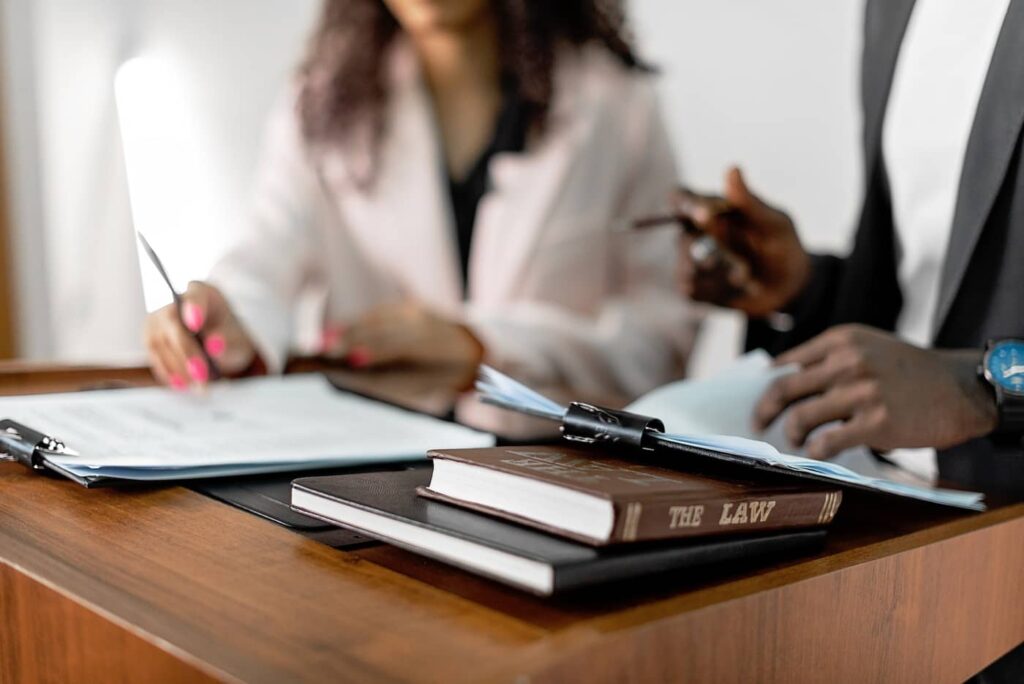Solovyova Law Firm
VAWA Self-Petition: A Path to Safety and Legal Status
VAWA Self-Petition: Understanding the Process and Requirements
The Violence Against Women Act (VAWA) offers protection and a legal pathway for certain abused spouses, children, and parents of U.S. citizens or lawful permanent residents. Through VAWA self-petitions, eligible individuals can apply for legal status without their abuser’s knowledge or involvement, empowering them to seek safety and independence.
Who Can Self-Petition Under VAWA?
VAWA self-petitions are available to:
- Spouses of U.S. citizens or lawful permanent residents
- Children of U.S. citizens or lawful permanent residents
- Parents of U.S. citizen children (if the child is at least 21 years old)
Eligibility Requirements
To qualify for a VAWA self-petition, you must demonstrate:
- A qualifying relationship with an abusive U.S. citizen or lawful permanent resident
- Battery or extreme cruelty during the qualifying relationship
- Residence with an abusive relative
- Good moral character
For spousal self-petitions, the marriage must have been entered into in good faith.

Proving Abuse and Eligibility
Documenting abuse can be challenging, but at Solovyova Law Firm we can help you gather essential evidence, such as:
-
- Personal declarations
- Psychological evaluations
- Medical records
- Affidavits from witnesses
- Police reports
We handle these cases with the utmost confidentiality and sensitivity to protect our clients.
The VAWA Self-Petition Process
Filing a VAWA self-petition involves submitting Form I-360 to U.S. Citizenship and Immigration Services (USCIS). If your abuser is a US citizen, you can also file for work authorization and a green card. Our firm assists clients with:
- Preparing a complete application package
- Gathering supporting documentation
- Responding to Requests for Evidence (RFEs), if needed
- Navigating the USCIS adjudication process
Benefits of a VAWA Self-Petition
Successful VAWA self-petitioners may:
- Obtain work authorization (work permit)
- Become eligible for certain public benefits
- Apply for lawful permanent residence (Green Card)
- Petition for qualifying family members
Most importantly, VAWA helps survivors break free from abusive situations and build independent lives.
Frequently Asked Questions About VAWA Self-Petition
Can men apply for VAWA self-petitions?
Yes, VAWA self-petitions are available to both men and women who meet the eligibility requirements.
How long does the VAWA process take?
Processing times for Form I-360 vary. You can check the latest processing times at the USCIS Tracker. Select I-360 application.
Will my abuser be notified if I file a VAWA self-petition?
No, VAWA self-petitions are confidential. Your abuser will not be notified or involved in the process.
Can I include my children in my VAWA self-petition?
Yes, unmarried children under 21 can be included in your VAWA self-petition.
Do I need a police report to file VAWA?
No, a police report is not required. The most important part of your VAWA self-petition is your detailed affidavit. Even if you think you lack evidence, we can help you gather or explain missing evidence.
Do I need to leave my abuser to apply for VAWA?
No, you do not need to physically separate from your abusive spouse to file a VAWA self-petition.
Do I need to file for divorce to apply for VAWA?
No, you do not need to file for divorce or leave your abuser to apply.
Can I file for VAWA if I am in Immigration Court proceedings?
Yes, VAWA petitions can be filed even if you are in immigration court.
Can I still file for VAWA if I divorced my spouse more than a year ago?
Yes, you can file within two years of your divorce.
Our Success Stories
Our firm has a proven track record of successfully handling complex immigration cases:
Maria’s Journey to Safety and Independence
Maria, an abused spouse of a U.S. citizen, filed a VAWA self-petition with our help in August 2018. She received her work permit first, and soon after, her VAWA petition was approved. Attorney Sophia Solovyova prepared her for the green card interview and attended with her. Maria is now safe and independent.
Andy’s VAWA Success
Andy, married to an abusive lawful permanent resident, filed a VAWA petition with our office. His case was approved, securing his immigration status and allowing him to obtain a work permit and Social Security card. Even though he couldn’t apply for a green card immediately, his VAWA approval ensured his independence.
Client Testimonials
Contact Us
At Solovyova Law Firm we have helped numerous VAWA petitioners secure legal status and gain independence from their abusers. Let us help you, too.
Schedule a Confidential Consultation:
- Phone: 212-379-6471
- Email: sophia@solovyovalawfirm.com
- Address: 75 Broad St. Suite 2120, New York, N.Y. 10004
We offer initial consultations via Zoom or phone to accommodate your needs. Visit our Contact Us page to book your consultation today
We Are Here For You:
Schedule Your Consultation Now



"Recently I’ve received my green card and I’m grateful to my attorney Sophia Solovyova. She is so professional and responsible. My case was very complicated but she did it excellent."
Olha Khromov